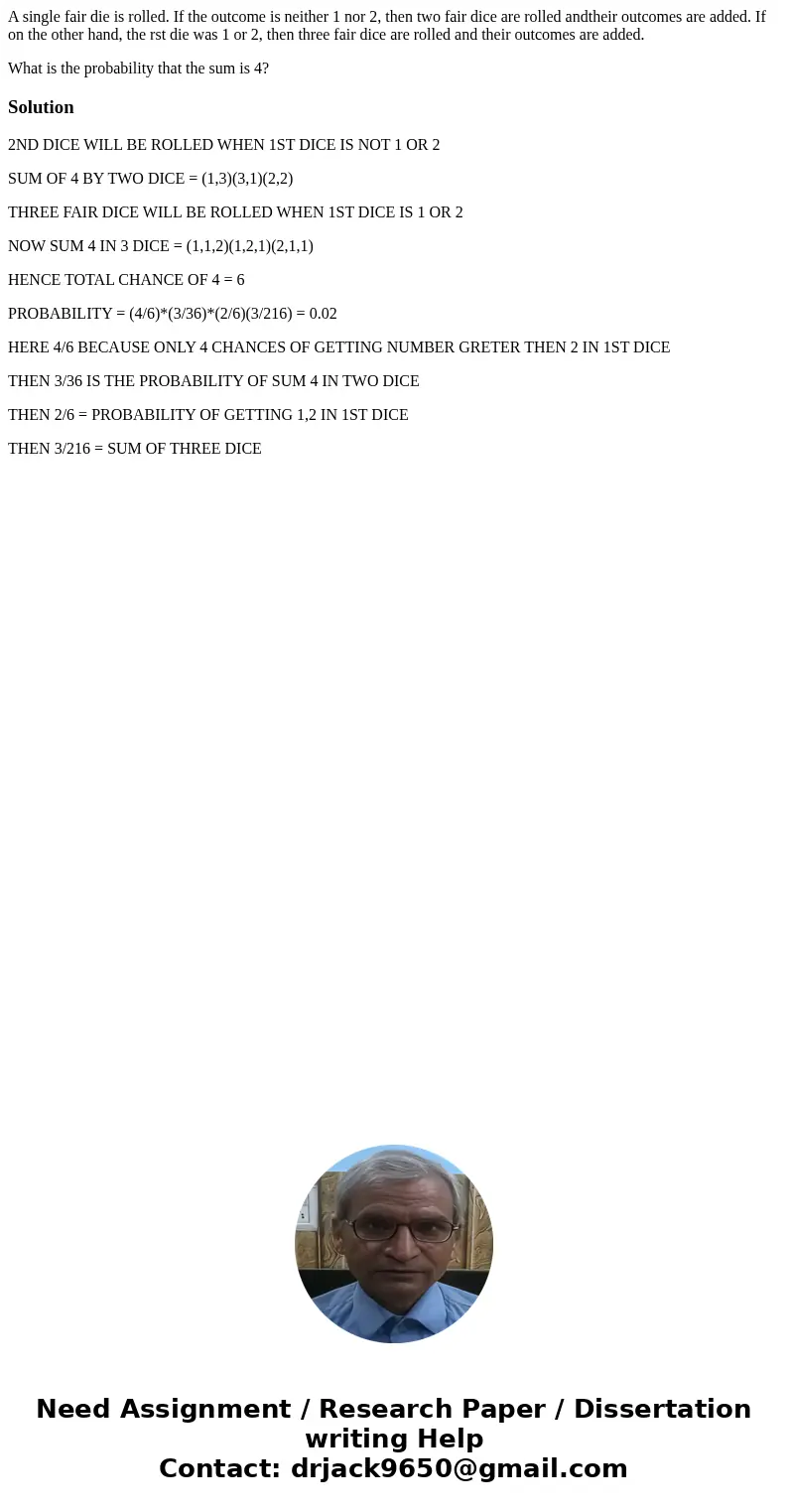A single fair die is rolled If the outcome is neither 1 nor
A single fair die is rolled. If the outcome is neither 1 nor 2, then two fair dice are rolled andtheir outcomes are added. If on the other hand, the rst die was 1 or 2, then three fair dice are rolled and their outcomes are added.
What is the probability that the sum is 4?
Solution
2ND DICE WILL BE ROLLED WHEN 1ST DICE IS NOT 1 OR 2
SUM OF 4 BY TWO DICE = (1,3)(3,1)(2,2)
THREE FAIR DICE WILL BE ROLLED WHEN 1ST DICE IS 1 OR 2
NOW SUM 4 IN 3 DICE = (1,1,2)(1,2,1)(2,1,1)
HENCE TOTAL CHANCE OF 4 = 6
PROBABILITY = (4/6)*(3/36)*(2/6)(3/216) = 0.02
HERE 4/6 BECAUSE ONLY 4 CHANCES OF GETTING NUMBER GRETER THEN 2 IN 1ST DICE
THEN 3/36 IS THE PROBABILITY OF SUM 4 IN TWO DICE
THEN 2/6 = PROBABILITY OF GETTING 1,2 IN 1ST DICE
THEN 3/216 = SUM OF THREE DICE

 Homework Sourse
Homework Sourse